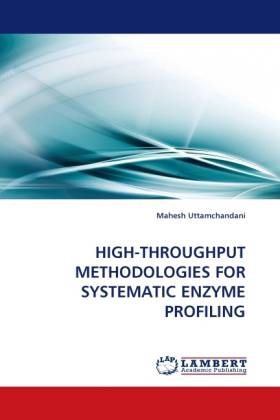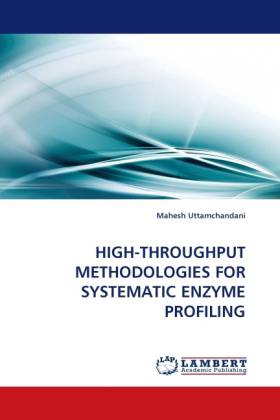
- Afhalen na 1 uur in een winkel met voorraad
- Gratis thuislevering in België vanaf € 30
- Ruim aanbod met 7 miljoen producten
- Afhalen na 1 uur in een winkel met voorraad
- Gratis thuislevering in België vanaf € 30
- Ruim aanbod met 7 miljoen producten
Zoeken
HIGH-THROUGHPUT METHODOLOGIES FOR SYSTEMATIC ENZYME PROFILING
Mahesh Uttamchandani
Paperback | Engels
€ 113,45
+ 226 punten
Omschrijving
Recent evidence suggests that 18-29% of eukaryotic genomes encode enzymes. However, only a limited proportion of these enzymes have thus far been characterized, and little is understood about the physiological roles, substrate specificity and downstream targets of the vast majority of these important proteins. While advances in sequencing and molecular biology have made it feasible to quickly amass a great wealth of genetic information, sparking the genomic revolution, similar capabilities are severely lacking in the relatively nascent proteomics arena. A key step towards the biological characterization of enzymes, as well as in their adoption as drug targets, is the development of global solutions that bridge the gap in understanding proteins and their interactions. This thesis examines and addresses these challenges by introducing a series of technologies that span various analytical modes, effectively expanding current capabilities in protein profiling by leveraging on throughput.
Specificaties
Betrokkenen
- Auteur(s):
- Uitgeverij:
Inhoud
- Aantal bladzijden:
- 228
- Taal:
- Engels
Eigenschappen
- Productcode (EAN):
- 9783844385755
- Verschijningsdatum:
- 2/06/2011
- Uitvoering:
- Paperback
- Afmetingen:
- 152 mm x 229 mm
- Gewicht:
- 340 g

Alleen bij Standaard Boekhandel
+ 226 punten op je klantenkaart van Standaard Boekhandel
Beoordelingen
We publiceren alleen reviews die voldoen aan de voorwaarden voor reviews. Bekijk onze voorwaarden voor reviews.







